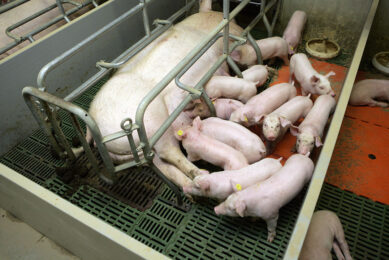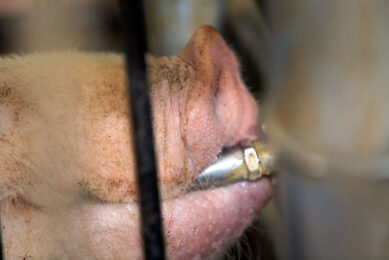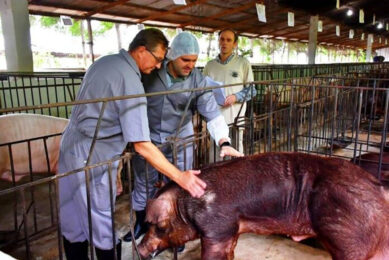Taiwan: EPA – Create sustainable rural villages through clean pig farming
Taiwan’s hog output has surpassed rice since 1986 to become the No. 1 item of agricultural and livestock products. The average annual hog output was NT$57 billion in the recent three years, accounting for 16% of the total agricultural output, according to the annual agriculture report.
The pig head survey in May 2010 showed that there were 6.126 million heads of pig in Taiwan and port consumption still accounted for some 50% of the total domestic meat consumption, demonstrating the importance of the pig industry in both production and consumption.
Most livestock farms in Taiwan are located in Changhua, Yunlin, Chiayi, Kaohsiung and Pingtung counties. Traditional way of washing pig houses with a lot of clean water not only wastes water resources but also makes the always damp pig houses breeding ground for bacteria, which adversely affects pigs’ survival rate. Wastewater and solid manures also pollute nearby rivers and the unbearable stench of pig manures not being processed properly affects the living and working environment around pig farms and causes resentment.
New eco-friendly pig farming
EPA Department of Water Quality Protection Director Yong-hsing Hsu said because traditional pig houses have the problems of stench, wastewater, pollution and poor quarantine and building and operating wastewater treatment plant costs too much, the EPA has actively developed new eco-friendly pig farming, not only reducing stench and wastewater but also raising pig survival rate with low maintenance costs and effectively reusing pig manures and resource recycling while significantly improving the environment of traditional pig farms.
EPA Department of Water Quality Protection Director Yong-hsing Hsu said because traditional pig houses have the problems of stench, wastewater, pollution and poor quarantine and building and operating wastewater treatment plant costs too much, the EPA has actively developed new eco-friendly pig farming, not only reducing stench and wastewater but also raising pig survival rate with low maintenance costs and effectively reusing pig manures and resource recycling while significantly improving the environment of traditional pig farms.
The concept of “clean pig farming and renewable green energy” mainly uses the technical process of production, collection and reuse to achieve the goal of saving water, reducing pollution and resource recycling. “Production” means install toilets to concentrate pig excrement, thus reducing the use of water to clean pig houses and keeping pig houses dry; “collection” means use automatic or semi-automatic facilities to collect solid pig manures for recycling to become useful resources or energy reuse; and there are now techniques of “reusing” pig manures to produce compost, biofuel, maggot-raising and biogas energy conversion.
Reduce use of water
According to the experience of Shandong Ranch in Yunlin County, installing pig toilets can reduce the use of water by 50% and improve the water quality of nearby rivers because of removing pollution sources. Moreover, pig manures can easily produce four kinds of stench (NH3, CO2, H2S, CH4) and collect pig manures at the source can significantly decrease both the possibility of producing stench and complaints about air pollution or stench from pig farms.
According to the experience of Shandong Ranch in Yunlin County, installing pig toilets can reduce the use of water by 50% and improve the water quality of nearby rivers because of removing pollution sources. Moreover, pig manures can easily produce four kinds of stench (NH3, CO2, H2S, CH4) and collect pig manures at the source can significantly decrease both the possibility of producing stench and complaints about air pollution or stench from pig farms.
In addition to improving air quality, preventing water pollution and stench and creating water-friendly space, Hsu suggested pig farmers to integrate clean pig farming with green landscaping and maintenance of environmental sanitation or plan appropriate bicycle paths and recreational trails to build sustainable rural villages.
Join 18,000+ subscribers
Subscribe to our newsletter to stay updated about all the need-to-know content in the pigsector, three times a week. Beheer
Beheer










 WP Admin
WP Admin  Bewerk bericht
Bewerk bericht